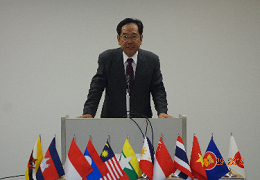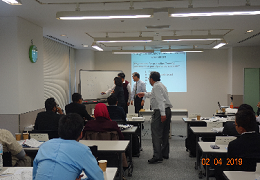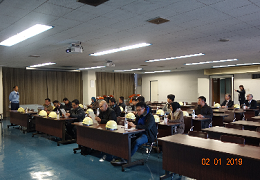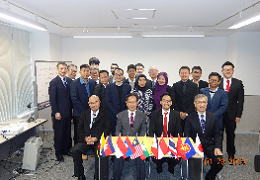Implementation of training in Japan for ASEAN countries as part of Energy Conservation support project (ECAP16)
<Training in Japan>
Under the instruction and financial support of the Ministry of Economy, Trade and Industry (METI), the Energy Conservation Center, Japan (ECCJ) implemented the following activities as an initiative in the AJEEP (ASEAN-JAPAN Energy Efficiency Partnership) Scheme 2 by inviting 14 candidate trainers from nine ASEAN countries to visit Japan for training during the seven-day period from January 29 to February 6, 2019.
(1) Participants gave presentations regarding the results of the energy conservation audits conducted in their countries, and these were evaluated together with the contents of the audit reports.
(2) ECCJ gave lectures relating to energy management systems, energy efficient heat technologies, energy efficient electrical technologies, and methods of discovering energy conservation opportunities.
(3) Examinations were conducted to confirm the degree of understanding of participants, and overall evaluations of the participants were made together with the results of examinations implemented at the Thai Training Center.

Opening greetings by ECCJ

View of lecture

Inspection visit to Idemitsu Kosan

Group photograph
As part of the new Scheme 2 activities, 14 candidate trainers from nine ASEAN countries were invited to visit Japan where the following training was implemented with the aim of promoting the capacity building program which contributes to the enhancement of qualified energy manager training together with the establishment and improvement of qualified energy manager certification systems in the 10 ASEAN countries.
(1) Participants from various ASEAN countries gave presentations relating to the results of energy conservation audits conducted in their countries, and these were evaluated together with the contents of the audit reports.
(2) ECCJ gave lectures regarding energy management systems, energy efficient heat technologies, energy efficient electrical technologies, and methods of discovering energy conservation opportunities. Additionally, examinations were conducted to evaluate the participants’ degree of understanding.

